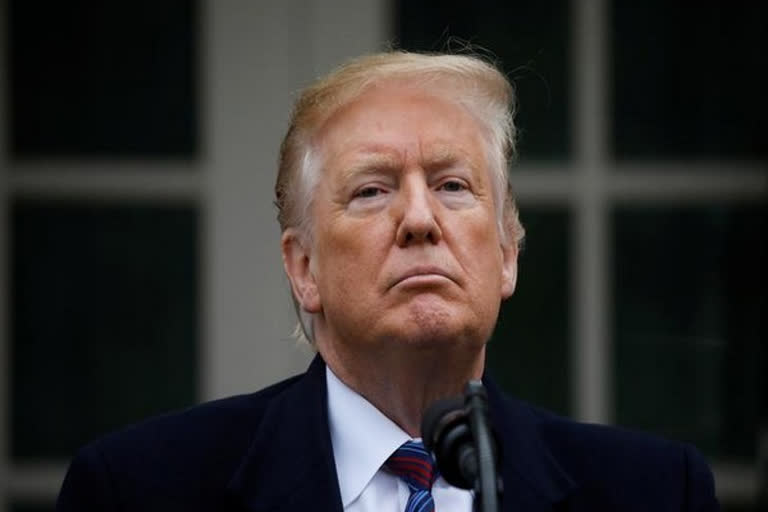Washington: The House of Representatives of United States on Friday has passed a defence policy bill which will keep a check on President Donald Trump's authorisation ability of calling a military strike on Iran.
Last month, the US President had abruptly ordered to launch a missile strike in a retaliatory action against Iran's downing of a US drone. However, the decision was pulled off at the last moment citing escalating tensions between Tehran and Washington.
The National Defense Authorisation Act, worth USD 733 billion, was passed along stark party lines 220 to 197 with the Republicans uniting to oppose the legislation, media reported.
"On the floor, the bill has taken a radical left turn," said Mac Thornberry, the top Republican on the House Armed Services Committee.
"There's good and bad in this bill ... but it's moving in a direction that does make America less safe," said Thornberry.
Ties between the two countries become strenuous after the US pulled out from the Joint Comprehensive Plan of Action (JCPoA) last year, blaming Iran for supporting state-sponsored terrorism and conflicts.
Trump had accused Iran of secretly enriching uranium for a long time, warning that more sanctions would be imposed substantially on Tehran soon.
On the same day, an emergency meeting was convened by the International Atomic Energy Agency (IAEA) at the behest of the US to discuss the current status of the 2015 nuclear deal.
The pact was signed by five countries the US, the UK, Russia, China and Germany, and the European Union with an aim to limiting Iran's civilian energy programme, thereby preventing it from developing nuclear weapons at some point in the future, in exchange for relief from sanctions that were crippling the country's economy.
A year after the US pulled out of the deal, Iran announced its partial withdrawal from the agreement.
While Tehran is yet to withdraw fully from the accord, it recently announced its decision to increase nuclear enrichment in response to the new US sanctions.
On Monday, the Atomic Energy Organisation of Iran announced that the country has officially surpassed the 3.67 per cent uranium enrichment limit set under the 2015 pact and could consider increasing the stockpile to 20 per cent in the future.
Read more: Fire breaks out at a local market in Iraq



